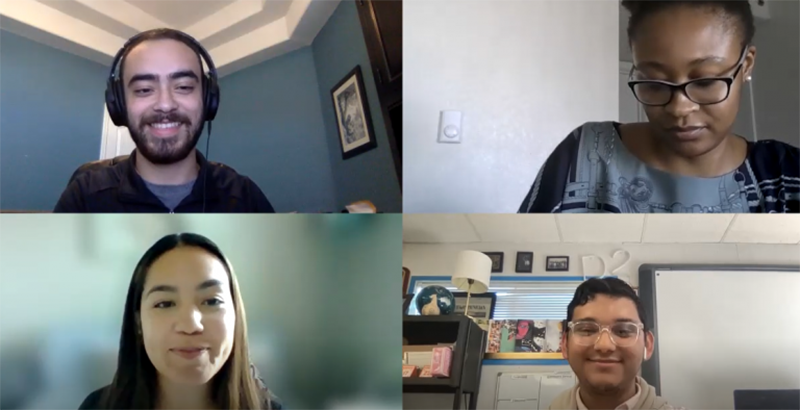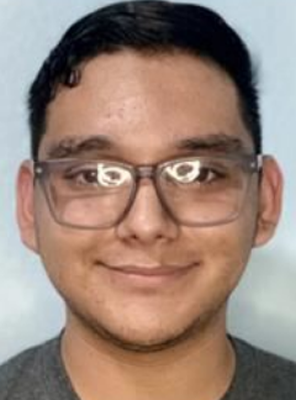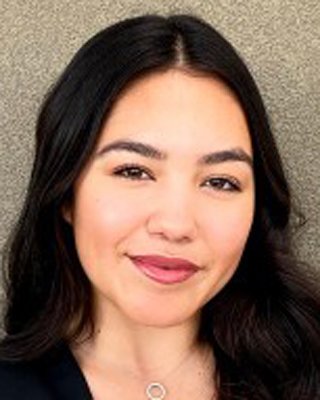Helping High Schoolers Transition to College: How 4 Texas Students Launched a Mentorship Network to Give the Next Generation the Tips and Advice They Wish They Had Known

Get stories like this delivered straight to your inbox. Sign up for The 74 Newsletter
In 2019, four college students from El Paso met at a Starbucks because they wanted to give back to their community, but weren’t sure how to do so.
“We sat down and we started talking about the experiences that we had in high school and what we felt the ecosystem of El Paso was in the education realm,” said Eric Diaz, a mathematics senior at the University of Texas at El Paso.

Although somewhat strangers to one another, they found a similarity in all of their experiences: a lack of knowledge on how to access and prepare for college.
“(We) looked at the struggles that we had when going to college, when applying for college, and looked at the fact that three of us were first-generation students,” Diaz said. “We realized that there was this sort of academic malnourishment in El Paso. That problem is because of a lot of reasons, but we noticed that it was just a little bit harder for us when we wanted to go to college.”
That conversation led to the creation of the El Paso Leadership Network, a non-profit organization that aims to mentor El Paso high school students as they prepare to transition to college.
“We think it could really help out the youth of El Paso to accelerate their understanding of the importance of college as well as, feeling super confident in the transition over to college,” said Diaz, vice president and one of four co-founders.
Now in its second year, the network has over 60 members across the nation.
Known as the “Scholars Program,” local high school juniors are paired with mentors for two years. The mentors are native El Paosans and current college students from across the country.
Every two weeks, all of the network’s mentees and mentors meet as a group over Zoom to discuss various topics that include how many colleges to apply to, essay writing, how to fill out college applications, financial aid and more. The individual mentees and mentors also meet separately and develop their own relationships.
“The junior curriculum is more like, ‘Oh, let’s think about all the high level things about college, like what kind of college you want to go to and meeting recruiters.’ But senior year, we like to get a little bit more personal because we know social life is changing, so we look at college organizations or personal finances,” Diaz said.
Diaz said the network is able to explore topics that may not be addressed by high school counselors because the mentors are not much older than the students in the program.
“As current college students we know what it takes, so there’s specific workshops that we have that actually aren’t really addressed maybe by older generations like mental health,” Diaz said.

Adriel Bustillos, a senior at Mission Early College High School, is a mentee of the program and a first-generation college student. As an accelerated college high school student he’s already received an associate degree in business from El Paso Community College and is attending UTEP this fall to receive his bachelor’s in political science.
“I’m happy that I have this program to rely on to guide me every step because you do have your (school) counselors, but it’s okay to have a backup advisor or mentor to help you lead the way,” Bustillos said.
His mentor, Ana Rodriguez, studies political science at UTEP and is the network’s director of public relations.
“I think every mentor has had the process of realizing, ‘What could I do for this mentee?’ ‘What do I think I can give that maybe they’re not thinking of at the moment,’” Rodriguez said.
As a first-generation student and political science major, Bustillos said having a mentor that studies the same area has been beneficial.
“It closes the gap between college readiness and financial aid,” Bustillos said about his concerns on navigating financial aid for the first time. “I think it also gives you that push to actually do better and find opportunities for yourself.”

As his mentor, Rodriguez said she has been able to give him a reality check on his upcoming college journey.
“I think one of the biggest pieces that I wanted to provide Adriel was that support system. It’s OK if you don’t need me all the time, but sometimes it’s just about talking to someone and seeing where you’re at and thinking about what’s going on,” she said.
Diaz said the network is currently expanding to include more opportunities and mentorship programs.
“We’re starting to raise money to give out scholarships for our scholars,” he said.
Diaz said these scholarships would allow students to fly out and visit colleges they’re interested in. He also said the money will be used to pay for application fees and provide vouchers for SAT or ACT tests.
The network will also be adding a mentorship program for college students to connect them with professionals who are from El Paso.
“We’re creating a separate program called ‘EPLN Professionals’ where we get expat El Paso people who are across the country doing amazing things,” he said.
Diaz said it has been heartwarming to see the progress the network has been able to make since its establishment two years ago.
“It’s exciting because it was very homegrown,” he said. “Being able to expand on our interests and talk about how we want to come together as a network, and come together as a community, and give back to the city as much as we can is amazing.”
Applications are currently being accepted for mentees and mentors for the program.
This article first appeared on El Paso Matters and is republished here under a Creative Commons license.![]()
Get stories like these delivered straight to your inbox. Sign up for The 74 Newsletter

;)